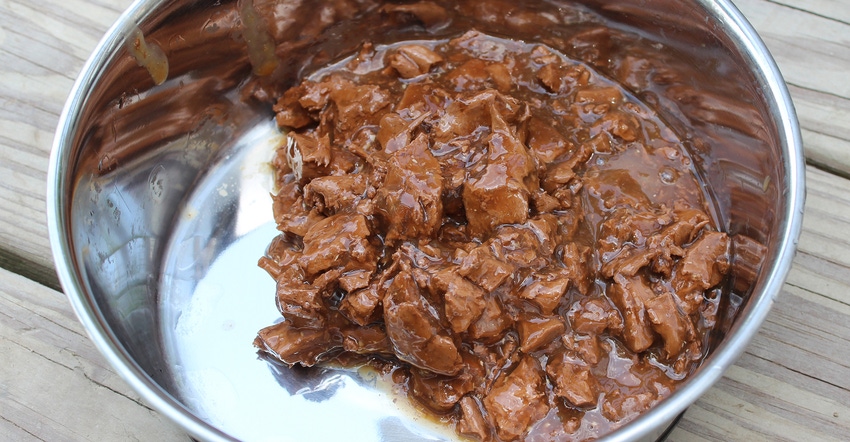
If the Impossible Foods company meets its goals, I won’t be raising hogs or cattle in 2035. Nobody will. I might be retired from livestock production by then anyway, but it won’t be because I’ve replaced the meat in my diet with plant-based meat substitutes.
Maybe, generations from now, my vegan descendants will look back at me with embarrassment as the last of the barbaric carnivores, but I don’t think I’ll be alone in preferring animal-based proteins until my dying day.
It’s not that I categorically oppose the idea of protein-rich foods made from plants or yeasts or fungi or whatever other life-form someone wants to consume. Those innovative foods can help feed our planet’s growing population. But I’m not convinced animal agriculture is obsolete just yet.
We thrive on variety
Human beings have proven they can survive, and even thrive, eating a variety of foods. We are omnivores, after all. We can digest everything from beans to blubber; and when we can’t digest something, like grass, we cycle it through some other helpful creature first. Our dietary versatility has served us well as a species, and most people in the world today have the luxury of selecting from a wide range of food choices. Oddly enough, that abundance and variety tends to make people pickier about their food.
I know I’m not the target consumer for fake meats. Or perhaps I should call them “faux” meats, because everything sounds more sophisticated in French. Faux meat makers seem to be convincing consumers that faux meat is a more sophisticated choice.
Perhaps my lack of sophistication is the reason I have such a hard time understanding why anybody would pay more to eat an imitation. Consider some other food trends American consumers have been following.
Processed foods are out of fashion, but faux meat is about as processed as you can get. Some consumers look for local foods, but nobody in my neighborhood is growing bamboo to harvest the cellulose used in Beyond Burgers.
And what about the opposition to GMOs? The heme used in Impossible Burgers is made using genetically engineered yeast. Actually, the willingness of consumers to accept GMOs in faux meat shouldn’t be a surprise, because consumers see those GMOs as beneficial to them. They only seem to oppose GMOs when they don’t see the direct benefit to themselves. That, however, is another issue.
Hierarchy of food needs
Whether consciously or unconsciously, people prioritize their concerns with their food choices. Nutritionist Ellyn Satter describes the food need hierarchy with a pyramid similar to Maslow’s hierarchy of needs. The base, representing humans’ first concern when it comes to food, is having enough. If that need is met, people get pickier, selecting foods based on safety, familiarity and taste.
Eventually, when they get used to having all the tasty food they want, people tend to seek out novelty in their diets and then start thinking about their food choices as a form of self-expression, choosing foods to meet spiritual or ethical goals. That might be too much psychological theory to digest on an empty stomach, but it does explain why people might discard other food preferences if they think faux meat is morally superior. I would disagree with that characterization, but many faux meat consumers seem to believe it.
On the other hand, another segment of the population is actually looking for more real meat in foods they choose. People who consider themselves pet parents are demanding dog food with more high-quality meat. And honestly, the ingredients listed on a can of Alpo sound more appetizing to me than the ingredients in a Beyond Burger.
Maybe someday I’ll be one of those pitiful old people eating dog food just so I can get some meat. But wouldn’t it make more sense to keep the meat for ourselves and feed the fake stuff to the dogs?
Keck writes from Raymond, Ohio.
About the Author(s)
You May Also Like




